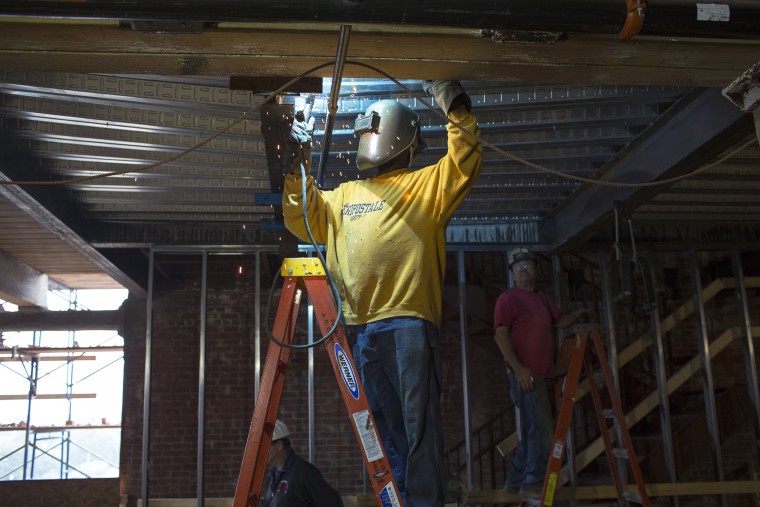A bipartisan bill to encourage energy efficiency in buildings died in the Senate on Monday, derailed by the contentious debate over the Keystone XL pipeline and President Obama's plans to issue new climate change regulations. [...] The measure, sponsored by Senators Rob Portman, Republican of Ohio, and Jeanne Shaheen, Democrat of New Hampshire, was a rarity in today's political environment: Until last week, it had widespread support from members of both parties in both chambers of Congress. A companion bill in the House, sponsored by Representatives David B. McKinley, Republican of West Virginia, and Peter Welch, Democrat of Vermont, has also drawn strong bipartisan backing. Congressional staff members have been working behind the scenes for nearly a year to draft a consensus version of the bill that party leaders in both chambers could endorse. Just a few weeks ago, leaders of both parties were optimistic that the Senate bill would show that bipartisan agreement is still possible in a gridlocked Capitol and pave the way for a broader energy bill.
Senate GOP kills bipartisan energy-efficiency bill
The Energy Efficiency Improvement Act was supposed to be proof that Congress can still govern. It ended up proving the opposite.

Federal lawmakers almost passed worthwhile, bipartisan legislation yesterday, but as is too often the case, the do-nothing Congress found a way to do, well, nothing.
This background is very important: the energy-efficiency bill was supposed to be a case study in how Congress is still capable of governing. A bipartisan and bicameral group of lawmakers not only agreed on a set of common policy goals, they quietly and deliberately worked on a package that everyone could agree on.
It took a year and a half, but this one piece of legislation would show Americans that the nation's legislative process can, once in a great while, still function.
Except in this case, it actually proved the opposite -- the bill had more than enough votes to pass, but it fell four votes shy of the support needed to end a Republican filibuster. (Technically, it finished with 55 supporters, but it had 56 before Senate Majority Leader Harry Reid switched his vote for procedural reasons.)
Even for the right, there's very little in the bill to hate.
As Ben Adler explained, "The Energy Efficiency Improvement Act, which passed the Republican-controlled chamber by an overwhelming margin, would, among other things, increase energy-efficiency requirements for federal buildings and create a voluntary certification system for private buildings."
By any fair measure, this was a modest proposal. The New York Times' report added, "It was a bundle of small-bore provisions aimed at cutting homeowners' energy use, utility bills and carbon footprints by, among other measures, making it easier for consumers to buy 'smart metered' water heaters and making it cheaper for manufacturers to build energy-efficient cooling and heating systems."
So if we're talking about a limited package that was good enough for even the House GOP, why in the world would the Senate GOP kill it? Because Republicans decided the legislation could be a vehicle for their other priorities. Specifically, the Senate GOP minority started by insisting that the proposal include a provision to require construction of the Keystone XL oil pipeline.
Senate Democrats offered a compromise: if Republicans allowed a vote on the bipartisan energy-efficiency bill, Dems would allow a separate vote on a stand-alone Keystone bill. The GOP not only said that wasn't good enough, they also upped the ante, declaring they also wanted a provision that would mandate congressional approval for President Obama's climate agenda.
The Democratic majority said Republicans were asking far too much, especially for a bipartisan bill, so the GOP minority killed the legislation.
And in the process, we were reminded anew that one of the worst and most ineffective Congresses in history is still capable of looking even worse.